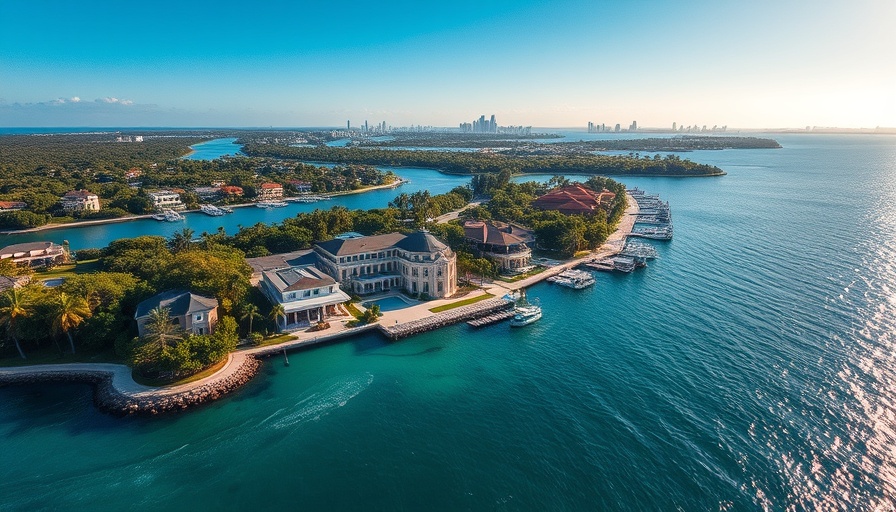
Welcome to Gables Estates: America's Most Expensive Neighborhood
In a stunning twist, Gables Estates in Miami has been crowned the most expensive neighborhood in the United States, surpassing even the renowned luxury of Beverly Hills. This transformation highlights a growing trend: Florida's luxurious real estate market is booming, largely propelled by the absence of a state income tax, which is attracting billionaires and investors alike to the sunny state.
The Allure of Gables Estates
According to Zillow, Gables Estates tops all neighborhoods in home value index—a result of meticulous assessments that consider sales transactions, tax records, and detailed property descriptions. This gated community features 179 exclusive waterfront lots, with each averaging an impressive 56,240 square feet. Homeowners enjoy grand mansions with full-sized docks that provide direct access to the magnificent Biscayne Bay, a playground for yachts and boating enthusiasts.
Wealth Shifts South
The migration of wealth is palpable. The likes of billionaires such as Jeff Bezos and Ken Griffin have relocated their businesses to Florida, expanding the reach of its upscale housing market. In a time when many are seeking refuge from high taxes and remote work flexibility, Gables Estates serves as an oasis for those looking to enjoy the high life in an enviable location that also offers modern schooling options for families.
Economic Growth in Coral Gables
Coral Gables, known for its Mediterranean architecture and lush greenery, is undergoing a transformation into a thriving hub for technology and finance. Historical roots trace back to the 1920s when the community was established with ambitious goals of fostering a cohesive, resource-rich neighborhood. Today, the median household income of $127,834 reflects the rising affluence of its residents.
Conclusion: The New Pinnacle of Luxury Living
As the lavish lifestyle in Gables Estates attracts attention, it also brings forth a plethora of investment opportunities in Florida real estate. Whether for living or investment, understanding the dynamics of this exclusive community could be key for anyone looking to delve into the luxury market.
 Add Row
Add Row  Add
Add 




Write A Comment